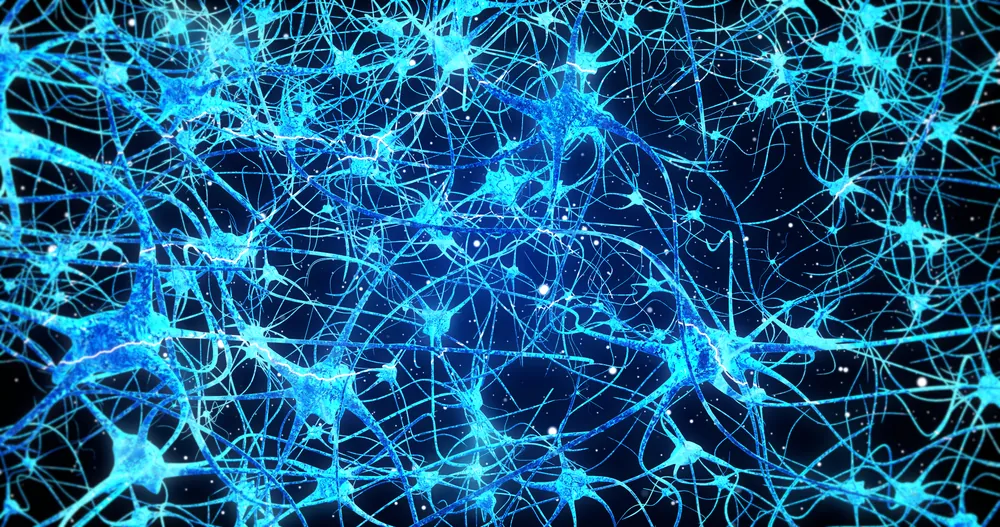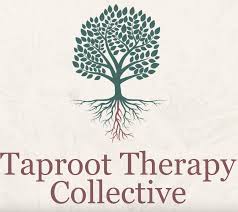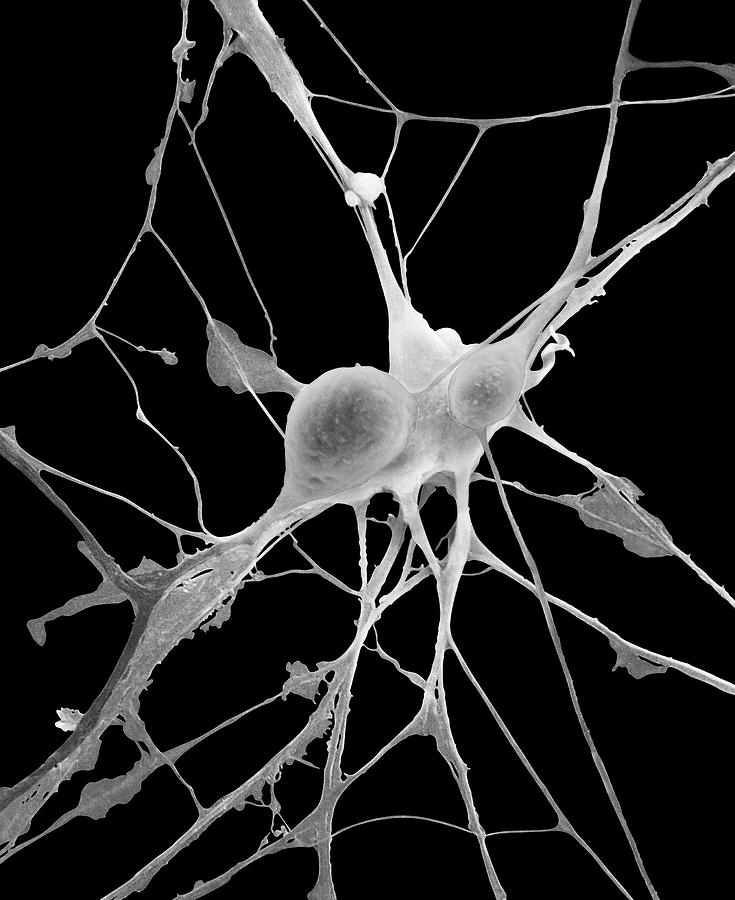
Taproot Therapy

Transformative Mental Health Solutions for Alabama's Academic Community
Innovative brain-based treatments for college students, faculty, and staff across Alabama
Quick Navigation
Beyond Traditional Therapy: Our Approach to Academic Mental Health
At Taproot Therapy Collective, we understand that the academic environment creates unique mental health challenges. Students, professors, and staff throughout Alabama's colleges and universities face specific pressures that conventional therapy often fails to address completely.
That's why we've pioneered an integrative approach that goes beyond endless talk therapy sessions. Our brain-based medicine and somatic therapies target the root causes of mental health concerns common in academic settings—including ADHD, anxiety, depression, burnout, and substance abuse—providing faster, more effective relief.
Through our hybrid approach combining advanced in-office treatments with convenient teletherapy options, we make comprehensive mental health care accessible to the entire academic community across Alabama—whether you're at the University of Alabama, Auburn, UAB, South Alabama, Jacksonville State, Troy, or any other institution in the state.
Why We Excel at Treating the Academic Community
- We understand academic pressure from multiple perspectives
- Our brain-based approach addresses the neurological impact of academic stress
- Flexible hybrid model combines teletherapy with specialized in-person treatments
- Evidence-based interventions that go beyond traditional talk therapy
- Specialized expertise in ADHD, anxiety, and other common academic challenges
Specialized Treatments for the Academic Mind
The academic environment creates unique mental health challenges. High-performance expectations, deadline pressures, social dynamics, and the constant intellectual demands can affect cognitive function, emotional regulation, and overall well-being. Our approach targets these specific challenges with treatments designed to restore optimal brain function.
QEEG Brain Mapping
Neurological Mechanism: QEEG measures electrical activity across different regions of the brain, identifying patterns of hyperactivity, underactivity, or dysregulation in specific frequency bands (delta, theta, alpha, beta, gamma) that correspond to different mental functions.
For college students and faculty, this precise diagnostic approach can identify specific neurological patterns underlying academic challenges, allowing for targeted interventions rather than generic therapy approaches.
Learn About Brain MappingBrainspotting for Academic Trauma
Neurological Mechanism: Brainspotting utilizes the profound connection between eye position and brain activation. When a specific eye position (brainspot) is held, it provides direct access to the subcortical brain regions where traumatic memories are stored, bypassing the prefrontal cortex's analytical filters.
This approach allows the brain's natural processing systems to resolve academic trauma at its source, often in fewer sessions than traditional therapy.
Discover BrainspottingADHD Treatment Without Medication
Neurological Mechanism: Our approach addresses the cortical arousal patterns in ADHD, where the prefrontal cortex shows decreased activity during focused tasks while sensory and motor areas may show hyperactivity. We combine neurofeedback to train optimal brainwave patterns with nutritional support for neurotransmitter function.
This comprehensive approach targets the underlying neural patterns of ADHD rather than simply masking symptoms with medication.
ADHD SolutionsEMDR for Academic Anxiety
Neurological Mechanism: EMDR uses bilateral stimulation to activate both hemispheres of the brain alternately, enhancing communication between emotional processing centers (amygdala, hippocampus) and the rational prefrontal cortex, allowing traumatic memories to be processed and integrated.
For academic anxiety, this means distressing experiences like test failures or public speaking disasters can be processed and neutralized, reducing their impact on current performance.
Explore EMDRSubstance Abuse Treatment for College Students
Neurological Mechanism: Substance use disorders involve dysregulation in reward circuitry and prefrontal control mechanisms. Our approach combines neurofeedback to strengthen prefrontal regulation with trauma processing to address underlying emotional drivers of substance use.
This dual-focus approach addresses both the neurochemical imbalances and psychological factors maintaining substance use in academic settings.
Recovery SupportMicronutrition for Brain Optimization
Neurological Mechanism: The brain requires specific nutrients as cofactors for neurotransmitter synthesis, myelin production, and mitochondrial energy generation. Targeted micronutrient therapy provides these essential building blocks, supporting optimal neural function and communication.
For students and faculty, this can enhance cognitive performance, emotional regulation, and stress resilience without the side effects of medication.
Nutritional ApproachesThe Neuroscience Behind Our Approaches
Traditional therapy primarily engages the prefrontal cortex through verbal processing, which has limited impact on subcortical emotional processing centers like the amygdala, hippocampus, and brainstem. This is why talk therapy alone often produces slow results for conditions with strong neurobiological components.
Our brain-based approaches directly engage multiple brain systems simultaneously:
- Limbic system regulation: Processing emotional responses and threat detection
- Brainstem and autonomic nervous system: Addressing fight-flight-freeze responses stored in the body
- Default mode network: Improving self-referential processing and mind-wandering
- Salience network: Enhancing attention to relevant stimuli
- Executive control network: Strengthening cognitive control and planning
By working with these systems directly, we can create faster and more profound changes than approaches that work solely through cognitive verbal processing.

Understanding ADHD in Academic Settings
ADHD represents one of the most significant yet frequently misunderstood challenges in academic environments. Beyond simple "attention problems," ADHD affects executive functioning, emotional regulation, motivation systems, and time perception—all critical elements for academic success.
College Students with ADHD
Of college students have diagnosed ADHD, with many more undiagnosed
Academic Impact
Higher risk of academic probation and lower GPA among students with untreated ADHD
Faculty with ADHD
Estimated percentage of faculty members navigating ADHD while managing teaching and research demands
Graduation Rate
Lower graduation rates for students with ADHD who don't receive appropriate support
The Neurobiology of ADHD
Modern neuroscience has revealed that ADHD involves several key brain systems:
- Prefrontal Cortex: Reduced activity in areas responsible for executive functions like planning, organizing, and inhibiting impulses
- Basal Ganglia: Alterations in this region affect the brain's reward processing and motivation systems
- Neurotransmitter Imbalances: Differences in dopamine and norepinephrine signaling affect attention, reward processing, and executive function
- Default Mode Network: This "mind-wandering" network may be overactive and difficult to suppress during tasks requiring focus
- Corpus Callosum: This brain structure connecting the hemispheres may show reduced volume, affecting interhemispheric communication
Understanding these neurobiological patterns allows us to design interventions that directly address the root causes of ADHD symptoms rather than just managing behavior.
Learn More About Our ADHD TreatmentBeyond Medication: Our Neurobiological Approach to ADHD
While stimulant medications focus primarily on dopamine and norepinephrine, our comprehensive approach addresses multiple aspects of brain function involved in ADHD:
- Neurofeedback Training: Directly trains the brain to optimize its electrical activity patterns, enhancing prefrontal function and reducing hyperactivity
- Micronutrient Support: Provides essential cofactors for neurotransmitter synthesis and mitochondrial energy production
- Sleep Optimization: Addresses the disrupted sleep architecture common in ADHD that exacerbates symptoms
- Autonomic Regulation: Improves the balance between sympathetic and parasympathetic nervous system activity
- Executive Function Training: Develops practical strategies to strengthen prefrontal networks through targeted practice
By addressing these multiple neurobiological systems simultaneously, we can create more comprehensive and sustainable improvements than medication alone.

Addressing Substance Abuse in College Populations
The collegiate environment presents unique risk factors for substance abuse, from social pressures and availability to stress management and academic performance enhancement. Our specialized approach recognizes these contexts while providing effective intervention and recovery support.
The Neurobiology of Substance Use in Academic Settings
Substance use disorders in academic environments often involve specific neurobiological patterns:
- Self-medication of executive function deficits: Many students use stimulants to compensate for underlying ADHD or executive function challenges
- Stress-induced reward seeking: The high-pressure academic environment activates stress response systems, driving substance use as a form of relief
- Disrupted sleep-wake cycles: Academic schedules often conflict with natural circadian rhythms, leading to substance use to regulate sleep and alertness
- Social anxiety modulation: Many students use alcohol or other substances to dampen heightened amygdala activity in social situations
- Performance enhancement: The competitive nature of academia drives some students to use substances to enhance cognitive function or athletic performance
Our Neuroscience-Based Recovery Approach
Substance use disorders involve significant changes to brain circuitry related to reward, motivation, and executive function. Our treatment protocols directly address these neurological changes while also addressing the psychological and social factors that contribute to substance use in academic settings.
Reward Circuit Restoration
Using neurofeedback and targeted behavioral interventions, we help restore healthy functioning to the nucleus accumbens and ventral tegmental area—key components of the brain's reward system that become dysregulated with substance use. This addresses the biological basis of cravings and anhedonia (inability to feel pleasure).
Prefrontal Strengthening
The prefrontal cortex, responsible for impulse control and decision-making, is weakened through substance use. Our cognitive training and neurofeedback protocols specifically target strengthening prefrontal function to enhance the ability to make healthy choices despite cravings.
Trauma Processing
Using EMDR and Brainspotting, we help process underlying trauma that may be driving substance use. These approaches directly access the limbic system and amygdala where emotional trauma is stored, allowing for resolution without relying on substances for relief.
Stress Response Regulation
We employ autonomic nervous system regulation techniques to address the hyperarousal or hypoarousal patterns that drive substance use. By helping the brain develop more adaptive stress response patterns, we reduce the neurobiological drive to self-medicate with substances.

Our Expert Team of Academic Mental Health Specialists
Our therapists bring specialized expertise in addressing the unique mental health challenges faced by college students, faculty, and staff. Each offers a unique combination of therapeutic approaches tailored to academic mental health needs.
Dr. Jason Mishalanie, PhD., BCN
Dr. Mishalanie is a Licensed Psychologist and the Clinical Director of Peak Neuroscience. With over 24 years of experience, he specializes in neuropsychological assessment, QEEG brain mapping, and neurofeedback—making him uniquely qualified to address the neurobiological aspects of ADHD, anxiety, and other conditions affecting academic performance.
Learn MoreJoel Blackstock, LICSW-S MSW PIP
Joel specializes in trauma therapy with training in EMDR and Brainspotting. His integrative approach combines somatic therapy, parts-based therapies, and depth psychology to help students and faculty process academic trauma, performance anxiety, and identity concerns related to their academic roles.
Learn MoreJames Waites, LICSW MSW
James provides specialized support for students in high-pressure academic programs and faculty facing burnout. His expertise in stress management, performance optimization, and academic burnout makes him an ideal resource for those facing the intense demands of higher education.
Learn MorePamela Hayes, MSW LMSW
Pamela specializes in supporting those with complex PTSD, OCD, anxiety, and ADHD. Her expertise in addressing comorbid anxiety and ADHD makes her particularly effective for students struggling with these overlapping challenges in academic environments.
Learn MoreDr. Haley Beech, PhD MSW LMSW
Dr. Beech specializes in anxiety, depression, and trauma recovery. Her expertise in somatic approaches helps students and faculty whose academic stress manifests in physical symptoms, and her knowledge of the intersection between mental health and academic performance is invaluable.
Learn MoreKristi Wood, LICSW MSW PIP
Kristi specializes in helping college students manage anxiety, depression, and trauma responses that can interfere with academic success. Her background in EMDR and Brainspotting provides effective tools for addressing these challenges at their neurological roots.
Learn MoreView our complete team of therapists to find the perfect match for your specific needs, including specialists like Kristan Baer, Marie Danner, Alice Hawley, and Becky Milstead.
Serving Academic Communities Across Alabama
Our hybrid model combines teletherapy with in-person care at our Hoover location, allowing us to serve students, faculty, and staff at institutions throughout Alabama. We understand the specific cultures and pressures of each institution and tailor our approach accordingly.
Major Universities & Their Communities
Alabama's academic landscape is diverse, with each institution situated within communities that have their own unique character and mental health needs. Our services extend beyond campus boundaries to support the entire ecosystem surrounding these educational centers.
University of Alabama System
Students at the University of Alabama benefit from our specialized academic support while navigating the vibrant college town atmosphere of Tuscaloosa. The unique pressures of a flagship university—from Greek life stressors to academic competition—require targeted interventions that understand both campus culture and the surrounding community context, including areas like Moundville and Cottondale where many students and faculty reside.
At UAB, students and faculty face the distinct challenges of an urban medical and research institution. Our services extend to the neighboring communities of Homewood, Mountain Brook, and Vestavia Hills, where many students, researchers, and healthcare professionals reside. Academics living in Irondale and Leeds to the east also benefit from our specialized support that understands the unique dynamics of academic life.
The University of Alabama in Huntsville community faces unique challenges related to its STEM focus and connection to the aerospace industry. We provide specialized support not only on campus but throughout Huntsville and neighboring Madison, addressing the specific mental health needs of students and professionals in high-pressure technical fields. Our services extend to areas like Owens Cross Roads and Triana, ensuring comprehensive support throughout the region.
Auburn University System
The traditions and pressures at Auburn University create distinct mental health challenges for students, faculty, and staff. Our services extend throughout the Auburn community, supporting both the academic population and local residents. Many students and faculty commute from nearby areas, allowing them to benefit from both our on-campus initiatives and community-based support in surrounding areas.
Auburn University at Montgomery serves a diverse student body with unique needs. Our support extends throughout the Montgomery area, including surrounding communities like Prattville. The capital city context creates distinct pressures for students balancing academic responsibilities with work and family obligations in this vibrant urban center.
Southern Alabama Universities
The coastal setting of University of South Alabama brings unique challenges and opportunities. Our services support the university community while extending throughout the Mobile region, including areas like Daphne, Semmes, and Stapleton. For students in coastal communities, we offer specialized support in Gulf Shores and Loxley that addresses the unique lifestyle factors of these areas while maintaining academic focus.
Regional Universities & Communities
Jacksonville State University students benefit from our understanding of the unique dynamics of this regional institution. Our services extend throughout Jacksonville and nearby communities like Rainbow City and Glencoe, providing continuity of care regardless of whether students live on campus or commute from surrounding areas. The close-knit nature of these communities creates both supports and pressures that our therapeutic approaches acknowledge and address.
Students at Troy University face the challenges of a distributed campus system with sites throughout Alabama. Our teletherapy services ensure that Troy students can access consistent mental health support regardless of their location. The diversity of Troy's student body—including many international and non-traditional students—requires culturally responsive approaches that our specialized team delivers effectively across the region.
The liberal arts focus of University of Montevallo creates a unique academic environment with specific mental health needs. Our services support this creative community while acknowledging the particular pressures that come with arts education and performance. The historic small-town setting of Montevallo adds distinct community dynamics that influence student wellbeing and are integrated into our therapeutic approaches for residents of neighboring Alabaster and Pelham as well.
Students at University of West Alabama in Livingston benefit from our understanding of the unique dynamics of rural higher education. The specific challenges of academic life in a small-town setting require specialized approaches that acknowledge both the supportive aspects of close-knit communities and the pressures that can arise from limited resources and geographic isolation.
University of North Alabama students in Florence receive support that acknowledges the specific character of this historic institution and region. Our services extend to neighboring communities like Muscle Shoals, allowing students to maintain consistent therapeutic relationships whether they live on campus or commute from surrounding areas.
Private Universities & Faith-Based Institutions
Samford University students benefit from our understanding of the unique pressures of this private Christian university. Located in Homewood, many Samford students, faculty, and staff live in surrounding communities like Mountain Brook, Vestavia Hills, and the 280 corridor. Our approaches recognize the intersection of faith, academic excellence, and mental health that characterizes the Samford experience.
Students at Spring Hill College in Mobile receive support that acknowledges the Jesuit tradition and values of this historic institution. Our services extend throughout the Mobile area, including coastal communities where many students find housing and recreation. The integration of rigorous academics with spiritual formation creates unique mental health dynamics that our specialized approaches address effectively.
At Faulkner University in Montgomery, students navigate the distinct pressures of a Christian liberal arts education. Our services support both on-campus residents and commuter students living throughout the capital region. The dual emphasis on academic achievement and spiritual development creates unique mental health needs that our specialized team understands and addresses.
Huntingdon College students in Montgomery benefit from our understanding of the liberal arts tradition in a faith-based context. Many students come from communities throughout Alabama, and our teletherapy services ensure they can maintain consistent mental health support during campus breaks and when returning to their hometowns.
Historically Black Colleges & Universities
Alabama's HBCUs have rich traditions and unique campus cultures that require culturally responsive mental health approaches. Students at Alabama A&M University in the Huntsville area benefit from our specialized understanding of the HBCU experience combined with knowledge of the particular pressures of STEM education that characterizes many A&M programs.
Alabama State University students in Montgomery receive support that acknowledges both the historic significance of this institution and the contemporary challenges facing its students. Our services extend throughout the capital city, supporting students whether they live on campus or in surrounding neighborhoods.
The legacy of Tuskegee University creates a distinct campus environment with unique mental health needs. Our approaches honor this historical context while addressing the contemporary challenges facing Tuskegee students. The rural setting of this institution adds specific community dynamics that influence student wellbeing and are integrated into our therapeutic strategies.
Students at Miles College in the Birmingham area benefit from our proximity to this historic institution. Our understanding of the unique pressures facing HBCU students in an urban context informs our specialized approaches for the Miles community. Many students live in surrounding areas like Bessemer and western Birmingham, and our services extend throughout these communities.
Talladega College students receive support that acknowledges both the historic significance of this institution and its contemporary context. The small-town setting of Sylacauga nearby creates distinct community dynamics that influence student wellbeing and are integrated into our therapeutic approaches.
Students at Oakwood University, a historically Black Seventh-day Adventist institution in Huntsville, face unique challenges at the intersection of faith, cultural identity, and academic achievement. Our approaches acknowledge these distinct dynamics while providing effective support for the specific mental health needs that arise in this context.
Community Colleges & Technical Institutions
Alabama's community colleges serve diverse student populations with unique mental health needs. Jefferson State Community College students often balance academic responsibilities with work and family obligations. Our services extend to communities like Pinson, Trussville, and Homewood where many Jefferson State students live and work.
Lawson State Community College students benefit from our understanding of the unique challenges facing community college students in urban settings. Many Lawson State students live in western Birmingham and surrounding communities like Bessemer, and our services provide consistent support regardless of housing location.
Students at Gadsden State Community College receive support that acknowledges the specific dynamics of this institution and region. Our services extend to areas like Rainbow City and other nearby communities where many students live while pursuing their education.
The technical focus of Calhoun Community College in the Huntsville/Decatur area creates specific academic pressures for students. Our services support students throughout the region, including those in Hartselle and other surrounding communities, who are balancing technical education with work and family responsibilities.
Students at Shelton State Community College in Tuscaloosa benefit from our understanding of the specific dynamics of community college education in a university town. Many Shelton State students either transfer to the University of Alabama or work in university-adjacent industries, creating unique transitional challenges that our specialized approaches address effectively.
Coastal Alabama Community College students receive support that acknowledges the unique context of community college education in the Gulf Coast region. The tourism-based economy, coastal lifestyle, and technical education focus create specific mental health dynamics that our approaches address comprehensively.
Students at Snead State Community College benefit from our understanding of rural community college dynamics. The integration of academic pursuits with agricultural and industrial work creates unique scheduling and stress management challenges that our flexible approaches accommodate effectively.
Enterprise State Community College students, many connected to nearby Fort Rucker, receive support that acknowledges the intersection of military life, community college education, and rural location. Our approaches recognize the specific mental health needs that arise in this unique context.
Students at Bishop State Community College in Mobile benefit from our culturally responsive approaches to community college mental health in an urban setting. Many Bishop State students balance multiple life roles while pursuing education, and our flexible scheduling and teletherapy options accommodate these complex demands.
Wallace State Community College students receive support that acknowledges the specific vocational focus of many of their programs. The high-stakes nature of health professions education creates distinct mental health challenges that our specialized approaches address effectively.
Affluent Communities & High Academic Expectations
Several Alabama communities are characterized by exceptional academic expectations and achievement pressures. The 280 corridor stretching through the Birmingham suburbs features some of the state's highest-performing school districts and concentrations of academic professionals. Our services address the unique mental health challenges that arise in environments of intense academic competition and achievement expectations.
Communities like Greystone, Brook Highlands, and Eagle Point feature high concentrations of academically-oriented families and professionals. Our therapeutic approaches acknowledge the specific pressures these environments create while supporting optimal mental health and balanced achievement.
In Liberty Park and Riverchase, many residents balance high-profile professional careers with family responsibilities and ongoing education. Our services support this integration while addressing the specific mental health challenges that arise in high-achievement environments.
The Inverness community features many academic and medical professionals connected to Birmingham's universities and healthcare institutions. Our specialized approaches address the unique mental health needs of those balancing demanding careers with family life and continuous professional development.
In Lake Wilborn and other newer planned communities, residents often face the challenges of establishing community connections while maintaining high-achievement lifestyles. Our services support this integration of professional success with social wellbeing and family balance.
The Indian Springs area, home to one of Alabama's most prestigious private schools, creates unique academic pressures for students and their families. Our approaches acknowledge these specific dynamics while supporting balanced achievement and emotional wellbeing.
Growing Communities & Changing Demographics
Many Alabama communities are experiencing rapid growth and demographic changes that influence mental health needs. Areas like Chelsea, Helena, and Alabaster are attracting young families and professionals seeking excellent schools and quality of life. Our services support these transitioning populations as they establish new community connections and navigate changing identities.
Communities like Pelham and Moody are diversifying in both demographics and economic activities. Our approaches acknowledge these community evolutions while providing consistent mental health support through periods of transition and growth.
Rapidly developing areas around Madison and Harpersville are experiencing the integration of new residents with established community cultures. Our therapeutic approaches support both newcomers and longtime residents as they navigate changing community dynamics and expectations.
Towns like McCalla and Margaret are transitioning from rural to suburban identities as metropolitan areas expand. Our services acknowledge the specific mental health challenges that arise during these community transformations.
Rural & Small Town Communities
Alabama's smaller communities face distinct mental health challenges and opportunities. In towns like Fort Payne and Scottsboro, residents benefit from close community ties but may also face limited mental health resources. Our teletherapy services ensure that geographic location is never a barrier to receiving specialized care.
Communities like Pell City and Jasper combine rural traditions with evolving economies. Our approaches acknowledge these transitions while providing mental health support that respects community values and addresses contemporary challenges.
In smaller towns like Bremen, Jemison, and Rehoboth, residents face the challenges of maintaining mental health in close-knit communities where privacy concerns may create barriers to seeking help. Our teletherapy services provide a confidential option that respects these specific community dynamics.
Agricultural communities like Moundville and seasonal tourist destinations like Gulf Shores face distinct rhythms and pressures throughout the year. Our flexible approaches accommodate these seasonal patterns while providing consistent mental health support.
Comprehensive Regional Support
Our services extend throughout Alabama's diverse regions, ensuring that quality mental health care is accessible regardless of location. In northeastern Alabama, we serve communities like Albertville, Cullman, and Athens, acknowledging the specific character and needs of each area.
Central Alabama communities like Sylacauga, Jacksonville, and Gardendale benefit from our understanding of the region's unique blend of industrial heritage, educational institutions, and evolving identities.
In the Wiregrass region, we serve communities like Dothan and Enterprise, acknowledging the specific mental health needs that arise in areas influenced by agricultural traditions, military presence, and regional medical centers.
Alabama's Black Belt region presents unique challenges related to rural access and historical contexts. Our services adapt to these specific needs while providing culturally responsive approaches for communities throughout this historically significant area.
Our Hybrid Approach: The Best of Both Worlds
Our innovative hybrid approach offers the perfect solution for busy academic schedules and Alabama's diverse communities:
- Teletherapy sessions that can be accessed from anywhere in Alabama, fitting between classes or during office hours
- In-person specialized treatments at our Hoover location for interventions like brain mapping, neurofeedback, and other approaches that benefit from face-to-face delivery
- Flexible scheduling that adapts to the academic calendar, including increased availability during high-stress periods like midterms and finals
This combination ensures that distance is never a barrier to receiving comprehensive, high-quality mental health care tailored to the academic context. We also offer group therapy options for additional support and community connection.
Whether you're a student at one of Alabama's prestigious universities, a faculty member facing burnout, or a professional in an academically-oriented community, our specialized approaches address the root causes of mental health challenges rather than just managing symptoms. Our evidence-based methods include Brainspotting, EMDR, Somatic Experiencing, Jungian therapy, and parts-based therapy, all delivered by our expert team of specialized therapists.
From Fort Payne to Gulf Shores, from Tuscaloosa to Huntsville, we're committed to supporting optimal mental health throughout Alabama's academic communities. Our approaches address the specific challenges facing those with Autism Spectrum Disorder, ADHD, depression, anxiety, and other conditions that can impact academic performance and quality of life.
Ready to experience the difference our specialized academic mental health services can make? Contact us at (205) 598-6471 or [email protected] to schedule a consultation at our 2025 Shady Crest Dr, Hoover, AL 35216 location.

Beyond Campus: Supporting Academic Communities
Our services extend to the neighborhoods and communities surrounding these institutions. We understand that mental health needs don't stop at campus boundaries.
Birmingham Metro Area
- Mountain Brook - Serving high-achieving students and professionals
- Homewood - Adjacent to Samford University
- Vestavia Hills - Education-focused community
- Hoover - Our home base for in-person treatments
- Trussville - Growing suburb
- Chelsea - Rapidly developing community
Affluent Communities with High Academic Pressure
- 280 Corridor - High-achieving area
- Greystone - Prestigious community
- Liberty Park - For students, athletes, and professionals
- Brook Highlands - Specialized support
- Riverchase - For students, professionals, and executives
- Inverness - For athletes and professionals
- Eagle Point - Exclusive neighborhood
- Lake Wilborn - Newer community
Additional Communities We Serve
- Alabaster
- Albertville
- Athens
- Bessemer
- Bremen
- Cottondale
- Cullman
- Daphne
- Dothan
- Enterprise
- Florence
- Fort Payne
- Gardendale
- Gulf Shores
- Harpersville
- Hartselle
- Helena
- Indian Springs
- Irondale
- Jasper
- Jemison
- Leeds
- Loxley
- Margaret
- McCalla
- Moody
- Moundville
- Muscle Shoals
- Owens Cross Roads
- Pelham
- Pell City
- Prattville
- Rainbow City
- Rehoboth
- Scottsboro
- Semmes
- Stapleton
- Sylacauga
- Triana
Our Hybrid Approach: The Best of Both Worlds
Our innovative hybrid approach offers the perfect solution for busy academic schedules:
- Teletherapy sessions that can be accessed from anywhere in Alabama, fitting between classes or during office hours
- In-person specialized treatments at our Hoover office for interventions like brain mapping, neurofeedback, and other approaches that benefit from face-to-face delivery
- Flexible scheduling that adapts to the academic calendar, including increased availability during high-stress periods like midterms and finals
This combination ensures that distance is never a barrier to receiving comprehensive, high-quality mental health care tailored to the academic context. We also offer group therapy options for additional support.

Beyond Endless Talk Therapy: Getting to the Root of Academic Mental Health
Traditional therapy often keeps academic clients stuck in a cycle of endless sessions without addressing the neurobiological roots of their challenges. At Taproot Therapy Collective, we take a fundamentally different approach that leads to faster, more sustainable improvements.
The Neurobiological Limitations of Conventional Therapy
Conventional talk therapy operates primarily through the prefrontal cortex—the brain's analytical, verbal processing center. While this can be helpful for developing insights and coping strategies, it has significant limitations when addressing conditions with strong neurobiological components:
- Limited Access to Subcortical Regions: Talk therapy struggles to access the limbic system, brainstem, and other subcortical regions where emotional trauma and stress responses are stored
- Verbal Processing Bottleneck: The brain processes information in multiple modalities (visual, somatic, emotional), but talk therapy relies primarily on verbal channels
- Conscious vs. Unconscious Processing: Much of neural processing occurs below conscious awareness, outside the reach of verbal discussion
- Top-Down Limitation: Talk therapy works "top-down" from conscious cortex to emotional brain, while many symptoms originate "bottom-up" from more primitive brain regions
- Neurochemical Imbalances: Talk therapy alone has limited impact on the neurochemical systems that regulate mood, attention, and arousal
Our Neurobiologically-Informed Approach
Our integrative approach engages multiple brain systems directly, creating more comprehensive and lasting change:
- QEEG brain mapping identifies specific neural patterns contributing to symptoms, allowing for precision targeting rather than generic interventions
- Neurofeedback directly trains the brain to optimize its electrical activity, strengthening or calming specific regions based on individual needs
- Somatic therapies access traumatic memory networks stored in the body and brainstem, where talk therapy cannot reach
- Brainspotting and EMDR leverage the brain's natural processing systems through subcortical activation
- Micronutrition provides the biochemical building blocks needed for optimal neural function and neurotransmitter balance
This multi-system approach allows us to address the complete neurobiological basis of academic mental health challenges, not just their surface manifestations.

How Our Approach Changes the Brain
Current neuroimaging research shows that effective therapy literally changes the brain's structure and function. Our approaches work by:
- Enhancing neural connectivity between regions that may be under-connected (often seen in ADHD and trauma)
- Reducing hyperactivity in regions that may be overactive (common in anxiety disorders)
- Strengthening prefrontal regulation of emotional centers for better impulse control and emotional stability
- Normalizing default mode network activity for improved attention and reduced rumination
- Improving interhemispheric communication for better integration of logical and emotional processing
- Increasing neuroplasticity to allow more flexible and adaptive responses to academic challenges
These neurobiological changes create not just symptom relief but fundamental transformation of the brain systems underlying academic mental health challenges.
Sleep Optimization for Academic Performance
Sleep disturbances are endemic in academic environments, with studies showing that over 60% of college students qualify as poor-quality sleepers. Faculty face similar challenges, with research schedules, grading deadlines, and administrative responsibilities often extending into evening hours.
Poor sleep doesn't just cause fatigue—it fundamentally impairs cognitive functions essential for academic success:
The Neuroscience of Sleep and Memory
During sleep, particularly deep sleep (slow wave sleep) and REM sleep, the brain consolidates learning by transferring information from temporary hippocampal storage to more permanent cortical networks. This process is crucial for both factual learning and skill acquisition. Sleep deprivation directly impairs this process, reducing retention by up to 40% in studies with college students.
Sleep and Attentional Networks
Even one night of poor sleep reduces activation in the prefrontal cortex and alters connectivity in attentional networks, measurably reducing focus and sustained attention. For students with ADHD, who already have differences in these networks, sleep deprivation can amplify attention difficulties several-fold.
Sleep and Executive Function
The prefrontal cortex, responsible for planning, organization, and decision-making, is particularly vulnerable to sleep deprivation. Neuroimaging studies show reduced glucose metabolism and altered connectivity in this region after just one night of poor sleep, directly impairing the executive functions needed for academic performance.
Sleep and Emotional Regulation
Sleep deprivation increases amygdala reactivity while reducing prefrontal control over emotional responses. This neurobiological pattern makes academic stressors feel more overwhelming and harder to manage, creating a vicious cycle where stress impacts sleep, further impairing emotional regulation.
Our Neurobiological Sleep Optimization Approach
At Taproot Therapy Collective, we address sleep issues at their neurobiological root rather than just offering generic sleep hygiene tips. Our comprehensive approach includes:
- QEEG assessment to identify specific dysregulations in brain wave patterns that disrupt healthy sleep architecture
- Neurofeedback training to normalize the ratio of delta, theta, alpha, and beta waves essential for quality sleep
- Circadian rhythm optimization based on individual chronotype to align academic schedules with natural biological patterns
- Autonomic regulation to address the hyperarousal patterns that prevent quality sleep onset and maintenance
- Micronutrient support for the biochemical pathways that produce melatonin, GABA, and other sleep-regulating neurotransmitters
- Trauma processing to address nighttime hypervigilance that keeps the brain in a threat-detection mode incompatible with deep sleep
This approach not only improves sleep quality but directly enhances the neurological processes that depend on healthy sleep, creating a positive cycle of improved academic performance and better sleep.

Supporting Faculty and Staff Mental Health
Academic faculty and staff face unique neurobiological challenges that differ from those of students. The combination of teaching demands, research pressure, administrative responsibilities, and often precarious employment creates a perfect storm for burnout, anxiety, and stress-related conditions.
Burnout Recovery: A Neurobiological Approach
Academic burnout involves specific patterns of dysregulation in the brain's stress response systems. Our approach combines neurofeedback to recalibrate the HPA axis (hypothalamic-pituitary-adrenal) with targeted interventions to restore healthy prefrontal-limbic balance. This addresses the neural basis of burnout rather than just managing symptoms. Learn more about our burnout recovery programs.
Performance Anxiety Transformation
For faculty facing teaching anxiety, presentation fears, or tenure review stress, our approach directly addresses the amygdala hyperactivity and autonomic nervous system dysregulation underlying these responses. By using Brainspotting and other subcortical interventions, we can transform these responses at their source rather than just managing symptoms.
Work-Life Integration
The blurred boundaries of academic work create specific challenges for the brain's task-switching networks and default mode network. Our approach helps faculty develop neurobiologically-informed strategies for creating cognitive boundaries and supporting the brain's natural need for both focused work and restorative downtime.
Cognitive Optimization
Our brain-based approach optimizes neural networks involved in deep focus, creative thinking, and sustained cognitive performance—all essential for academic productivity. This includes enhancing prefrontal function, optimizing default mode network activity, and supporting the biochemical foundations of cognitive performance. Explore our executive coaching options.
The Neurobiology of Academic Burnout
Recent neuroscience research has revealed that burnout involves specific changes in brain structure and function:
- Reduced gray matter volume in the prefrontal cortex, affecting executive function and decision-making
- Amygdala enlargement leading to heightened stress reactivity and emotional exhaustion
- Altered connectivity between the prefrontal cortex and limbic system, reducing emotional regulation capacity
- Dysregulated HPA axis function creating abnormal cortisol patterns that affect energy, sleep, and mood
- Reduced activity in brain reward circuits, contributing to cynicism and reduced sense of accomplishment
Our approach directly addresses these neurobiological changes, helping faculty and staff recover from burnout at its source rather than just managing symptoms.
Begin Your Academic Mental Health Journey
Whether you're a student struggling with ADHD or anxiety, a faculty member facing burnout, or a staff member dealing with workplace stress, our specialized approach offers solutions that go beyond conventional therapy to address the root causes of your challenges.
Our Commitment to Academic Mental Health
At Taproot Therapy Collective, we understand that thriving academically requires optimal mental health. Our commitment includes:
- Neurobiologically-informed treatment that addresses the root causes of academic mental health challenges
- Evidence-based approaches that integrate cutting-edge neuroscience with proven therapeutic techniques
- Flexible scheduling that accommodates academic calendars and pressures
- Comprehensive assessment that identifies the specific neurobiological patterns affecting your academic wellbeing
- Personalized treatment plans that combine the most effective approaches for your unique situation


Ready to transform your academic experience through optimal mental health?
Phone: (205) 598-6471 | Email: [email protected]
Address: 2025 Shady Crest Dr, Hoover, AL 35216
